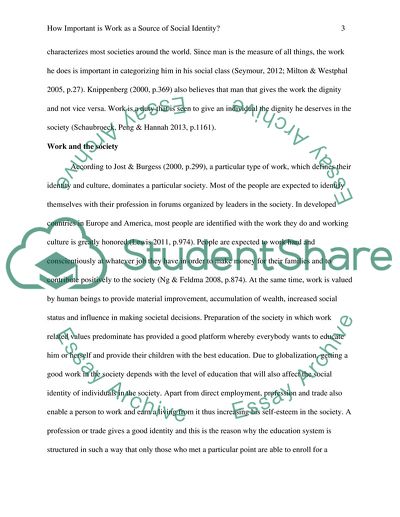Cite this document
(“How important is work as a source of social identity Essay”, n.d.)
How important is work as a source of social identity Essay. Retrieved from https://studentshare.org/psychology/1626677-how-important-is-work-as-a-source-of-social-identity
How important is work as a source of social identity Essay. Retrieved from https://studentshare.org/psychology/1626677-how-important-is-work-as-a-source-of-social-identity
(How Important Is Work As a Source of Social Identity Essay)
How Important Is Work As a Source of Social Identity Essay. https://studentshare.org/psychology/1626677-how-important-is-work-as-a-source-of-social-identity.
How Important Is Work As a Source of Social Identity Essay. https://studentshare.org/psychology/1626677-how-important-is-work-as-a-source-of-social-identity.
“How Important Is Work As a Source of Social Identity Essay”, n.d. https://studentshare.org/psychology/1626677-how-important-is-work-as-a-source-of-social-identity.


